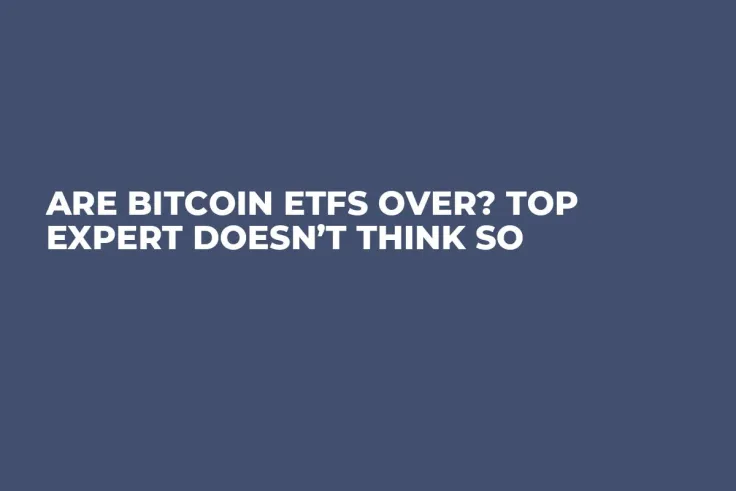
Nate Geraci, an authoritative voice in the ETF industry, recently took to X (formerly Twitter) to push back against some rather premature claims of the downfall of Bitcoin exchange-traded funds (ETFs).
Despite a recent outflow of roughly $850 million, Geraci believes that the game is far from over. The analyst pointed to the insanely successful launch of these ETFs, which have managed to attract roughly $50 billion worth of assets under management.
Furthermore, Geraci stressed that Registered Investment Advisors (RIAs) and brokerage platforms are yet to even approve Bitcoin ETF for use, which means that there is a lot of untapped potential.
In a subsequent post, Geraci recalled how many naysayers initially predicted that there would be no demand for Bitcoin ETFs.
Geraci was irked by a recent report from the Financial Times, which has called attention to the seemingly waning demand for the much-touted product. BlackRock's ETF attracted a relatively modest $576 million worth of inflows. At the same time, its rivals hardly attracted any inflows. At the same time, Grayscale's GBTC was been bleeding Bitcoin with record-breaking outflows.
Marex's Ilan Solot told the Financial Times that Bitcoin ETFs are now in "a dead zone" following a short period of exuberance. CoinShares's James Butterfill also opined that some investors remain on the sidelines due to the rapidly declining Bitcoin price.
Despite the short-term turbulence, industry insiders remain optimistic about the long-term prospects of Bitcoin and its ETFs.
Analysts point to the upcoming halving event in April, which historically has boosted Bitcoin's price.
At press time, the price of the flagship cryptocurrency is sitting slightly above the $67,000 level.

 Vladislav Sopov
Vladislav Sopov Dan Burgin
Dan Burgin